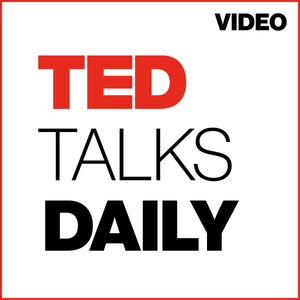
Privacy’s Blueprint - The Battle to Control the Design of New Technologies
03/12/19 • 65 min
Previous Episode

A History of the Internet
Why has the Internet had such a powerful impact? What are the challenges that may cause the Internet of tomorrow to be significantly less revolutionary than the Internet to date? This talk provides a history of the reasons for and the technology of the Internet. Scott Bradner has worked in the areas of computer programming, system management, networking, IT security, and identity management at Harvard for 50 years. He was involved in the design, operation and use of data networks at Harvard University since the early days of the ARPANET. He was involved in the design of the original Harvard data networks, the Longwood Medical Area network (LMAnet) and New England Academic and Research Network (NEARnet). He was founding chair of the technical committees of LMAnet, NEARnet and the Corporation for Research and Enterprise Network (CoREN). Mr. Bradner served in a number of roles in the IETF. He was the co-director of the Operational Requirements Area (1993-1997), IPng Area (1993-1996), Transport Area (1997-2003) and Sub-IP Area (2001-2003). He was a member of the IESG (1993-2003) and was an elected trustee of the Internet Society (1993-1999), where he was the VP for Standards from 1995 to 2003 and Secretary to the Board of Trustees from 2003 to 2016. Scott was also a member of the IETF Administrative Support Activity (IASA) as well as a trustee of the IETF Trust from 2012 to 2016. Mr. Bradner retired from Harvard University in 2016 after 50 years working in the areas of in computer programming, system management, networking, IT security and identity management. He continues to do some patent related consulting. More about this event here: https://cyber.harvard.edu/events/2019-02-05/history-internet
Next Episode

Waking Up to the Internet Platform Disaster - Featuring Roger Mcnamee and Lawrence Lessig
Roger McNamee is the author of Zucked: Waking Up to the Facebook Catastrophe. He is joined by Lawrence Lessig, the Roy L. Furman Professor of Law and Leadership at Harvard Law School. Facebook, Google and other internet platforms employ a business model – surveillance capitalism – that is undermining public health, democracy, privacy, and innovation in unprecedented ways. They use persuasive technology to manipulate attention for profit and they use surveillance to build data sets with the goal of influencing user behavior. The negative externalities of internet platforms are analogous to those of medicine in the early 20th century and chemicals in the mid-20th century, situations that required substantial regulatory intervention. For more info about this event visit: https://cyber.harvard.edu/events/2019-02-26/waking-internet-platform-disaster
If you like this episode you’ll love
Episode Comments
Generate a badge
Get a badge for your website that links back to this episode
<a href="https://goodpods.com/podcasts/berkman-klein-center-for-internet-and-society-audio-fishbowl-3751/privacys-blueprint-the-battle-to-control-the-design-of-new-technologie-166483"> <img src="https://storage.googleapis.com/goodpods-images-bucket/badges/generic-badge-1.svg" alt="listen to privacy’s blueprint - the battle to control the design of new technologies on goodpods" style="width: 225px" /> </a>
Copy




